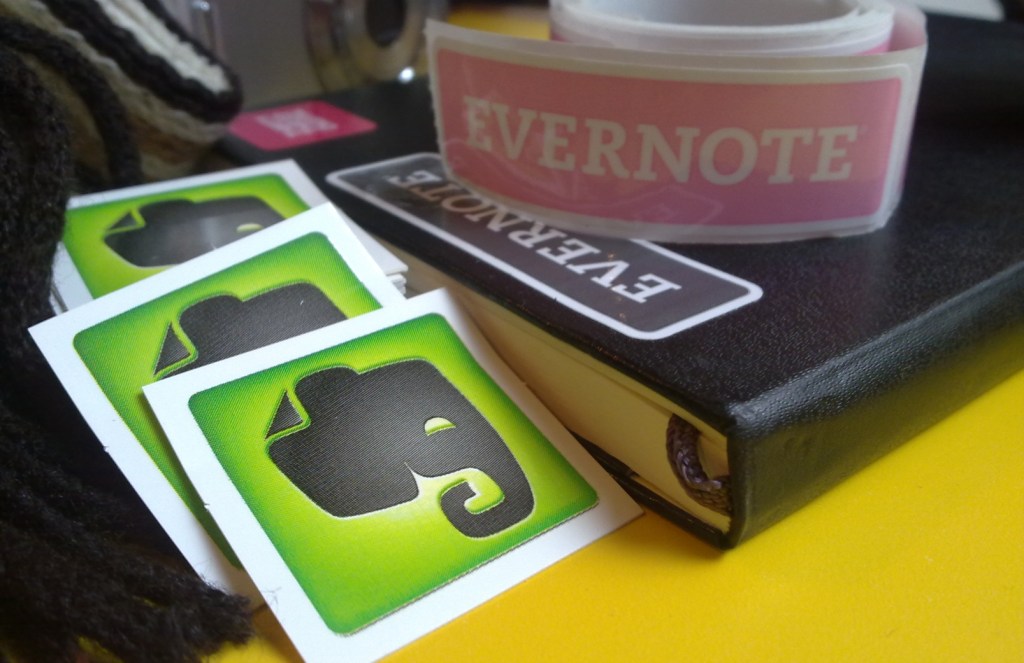Evernote — the popular note taking and productivity startup with 200 million users — has built its reputation around an app that lets you record and track all your life’s details hold them there, for life. Today, the company is shifting gears on the question of how it will keep hold of and track that information: Evernote is migrating all of its data, including some 5 billion notes, to Google’s Cloud Platform. As part of that, it will also start to use Google’s machine learning APIs to help access and use that data in different ways.
As a result, Evernote will be shutting down its previous storage architecture that was based around a private cloud infrastructure, along with some of its own tech. Evernote’s new CTO Anirban Kundu told me the first two areas that will be replaced by Google’s machine learning APIs are its voice recognition for speech-to-text translations; and natural language processing, used to help search for contextual content.
Evernote says it will start the migration to Google in early October, with “a complete migration by the end of 2016.”
“The transition to the cloud will occur completely in the background. You should see no impact to your service during the transition, and you do not need to take any action. Behind the scenes, Evernote will become faster, stronger, and more stable,” Evernote writes. It adds that among the security features that it will gain as a result of the change is encryption at rest, which it said many users have asked for in the past.
One thing that it will not gain are ads, Google’s most important business product.
“Google doesn’t get access to the users’ content to make any assumptions or provide any ads,” Kundu said. “Google Cloud Platform is a separate business unit and not interested in monetizing that content. We have no intention of using ads. Our user data is private to them and we protect that in the highest possible way.”
Evernote and Google are not revealing any financial terms of the deal, but Evernote tells me that it considered all of the usual suspects before picking Google. Microsoft might have been an obvious consideration, although it has been making some strong efforts to suck up Evernote users to its One Note platform, so that may understandably have been a bit awkward.
Evernote’s move underscores a change that is underway in the tech world to doing business “in the cloud.” For some that has meant taking data off premises into storage that you access over the Internet. And for others like Evernote, it underscores a shift from trying to build and run your own cloud services to outsourcing and using a larger company’s infrastructure to cut down costs and shift the job of building the infrastructure to keep that information to a larger provider.
“Evernote was a cloud company from the beginning,” the head of Google’s cloud business, Diane Greene, said in an interview today at TC Disrupt, “but when built it it, there wasn’t a place to put that [data] in the public cloud.”
The move also comes at a critical period for Evernote for other reasons.
The eight year-old startup a year ago parted ways with its longtime CEO and figurehead Phil Libin, who was replaced by current CEO, Chris O’Neill (who happens to be a Google alum). At the same time, the company — which has disclosed about $205 million in funding — has faced valuation markdowns from investors as it lost some of its momentum in terms of growth and overall buzz. Something else it has lost is talent, in the form of several departures of other long-standing execs in the wake of Libin’s exit.
Under new leadership, Evernote has started to make some moves to sort out its business. It has brought in new talent, and it has picked up some interesting new investments from strategic backers like Nikkei (one investment reported, and another unreported, from what I understand). It has also firmed up its revenue structure with more expensive pricing plans.
And, notably, it is cutting out some of its unprofitable operations as it repositions itself to grow in a more healthy way.
“There was a lot there that didn’t make sense,” O’Neill admitted to me last week.
This last development — cutting out some of the less efficient efforts of the business — is where the Google news today fits. Evernote describes the move to Google’s platform as a “natural progression for the company.”
As with any outsourcing project, Evernote’s emphasis is on how it can use the change to channel its resources to other areas.
“By moving its data center operations to Google’s cloud, Evernote can focus on its core competency: providing customers with the best experience for taking, organizing, and archiving notes,” the company writes in a blog post.
Evernote is by no means the first company to jump to Google’s Cloud Platform and use its APIs to run its customer-facing technology. Others on the Google Cloud Platform include Snapchat, Spotify, and Viant. Others using its machine learning APIs include Ocado, Wix, and Disney.
But all the same, it’s a big move for a company that has prided itself in years past on being an agnostic and reliable place for your photos, thoughts and documents, no matter what else happens, despite Evernote’s own past security issues.































Comment